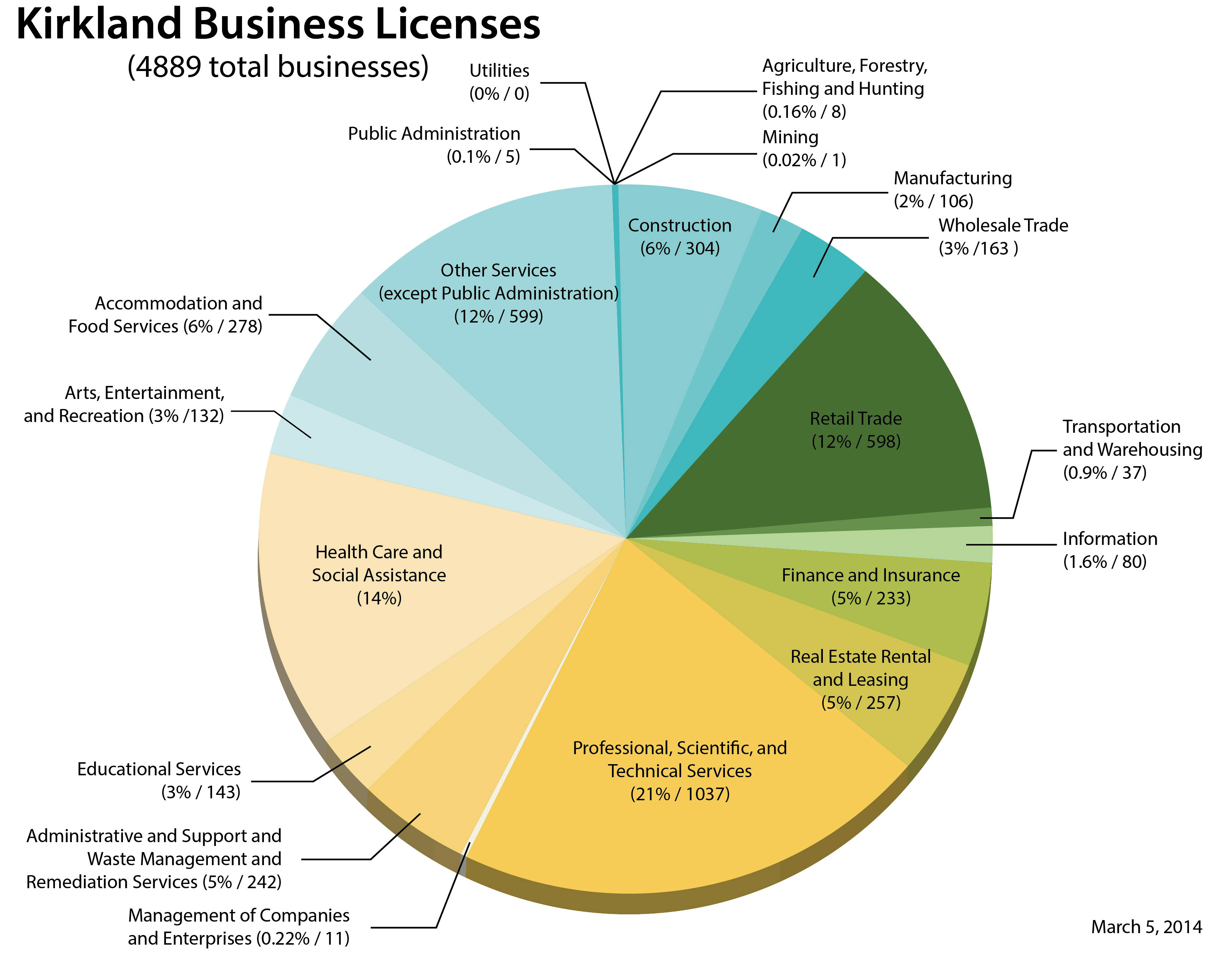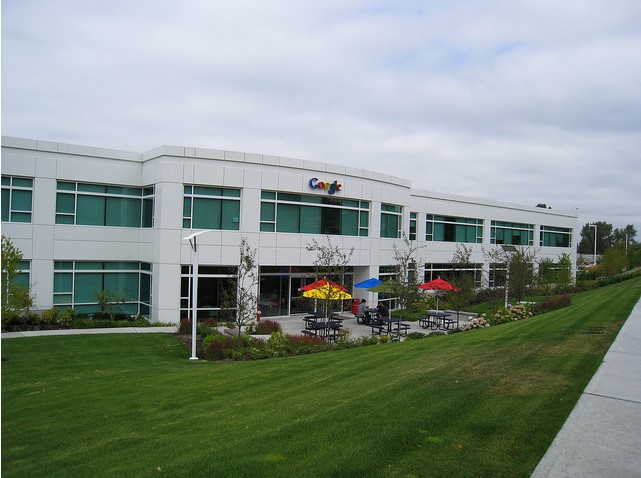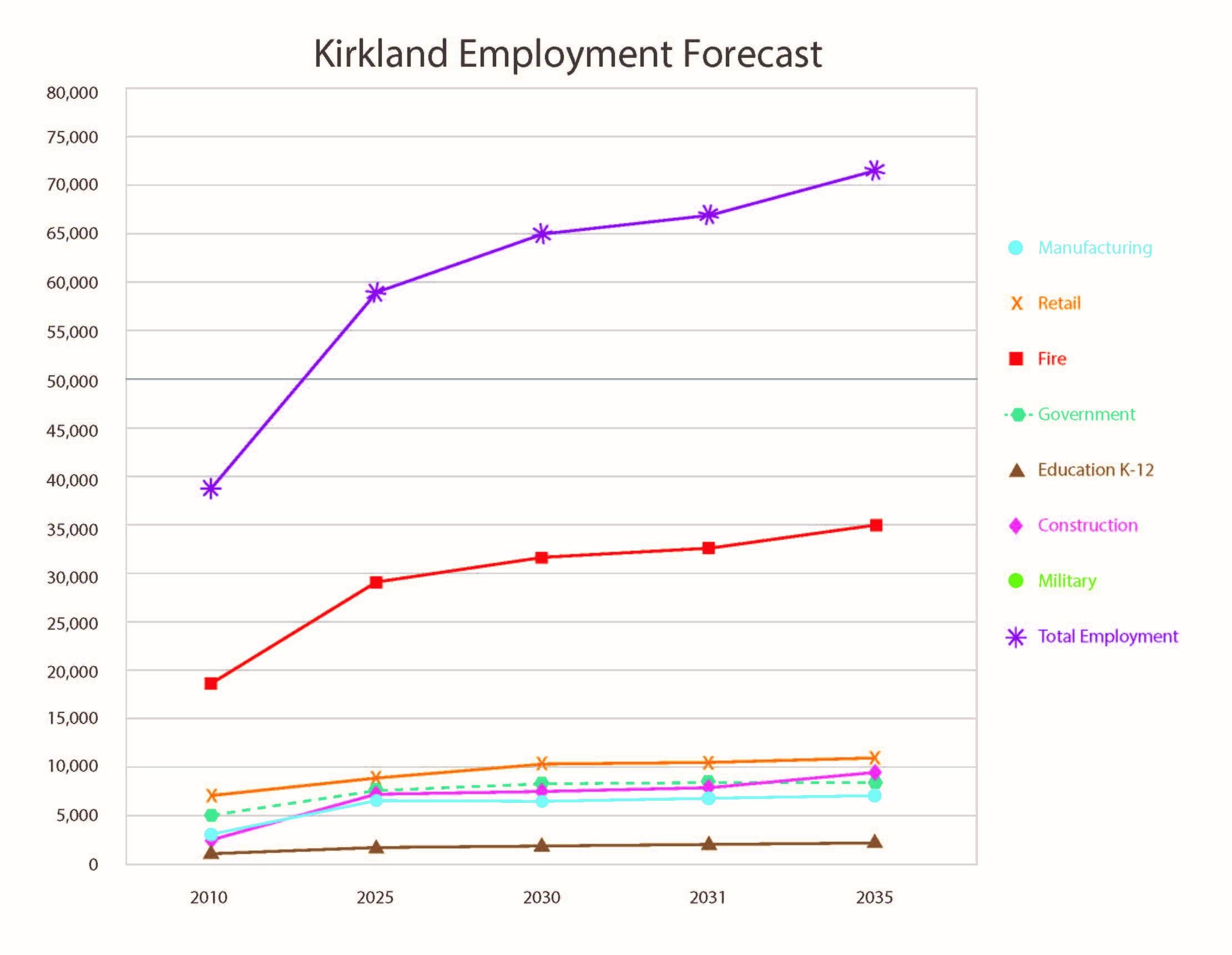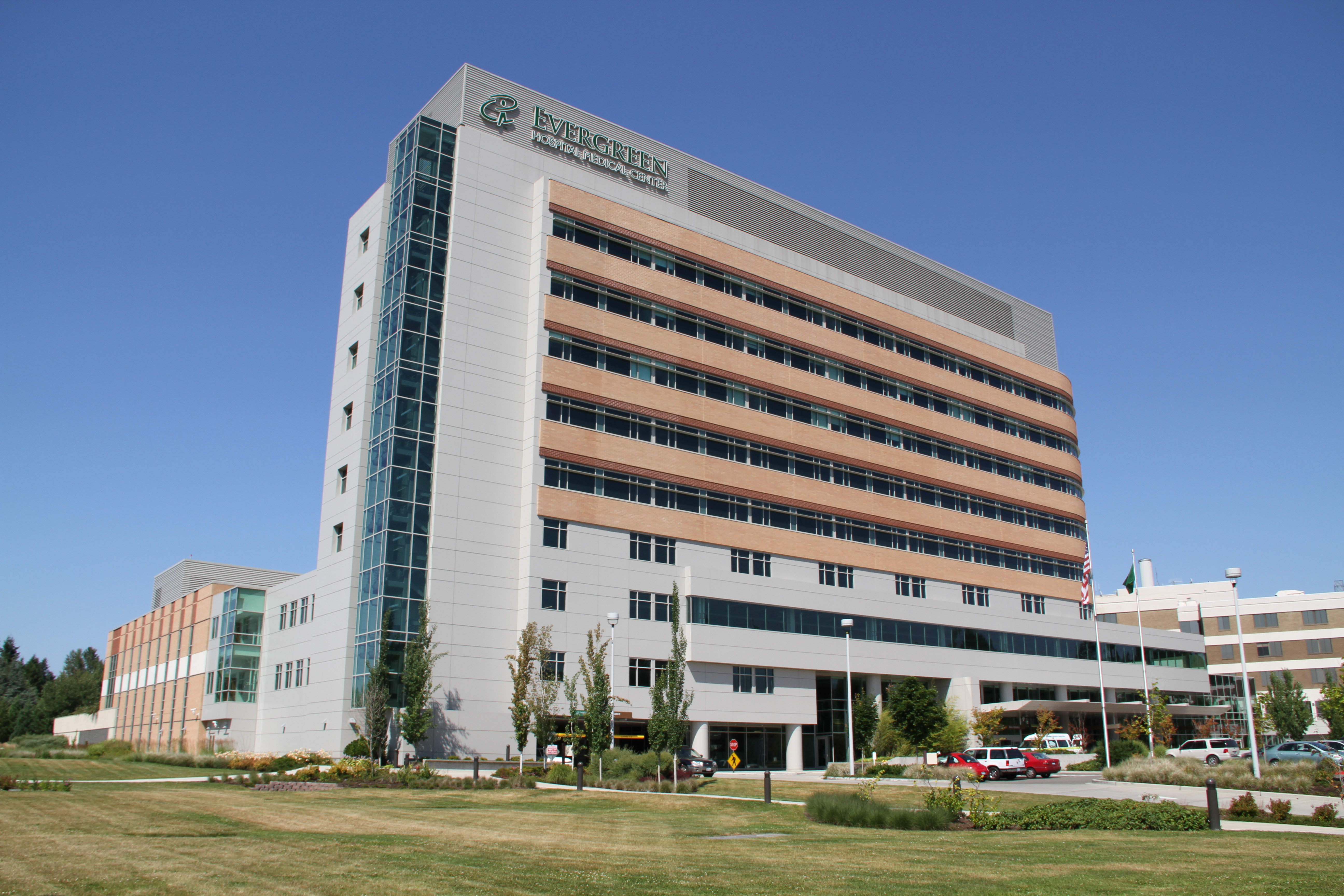B. Economic Concept
Economic development may be defined as public and private initiatives that promote job creation and business retention and recruitment, increase goods and services to residents and businesses, and provide job training programs, all of which contribute to a strong, sustainable and resilient economy.
The following goals and policies provide the framework for the Kirkland economy for businesses, people, and for creating vibrant places. The mission is to provide a business climate that maintains a healthy economy for jobs and businesses without sacrificing the qualities that make Kirkland a desirable place to live.
The overarching economic strategy for Kirkland strives to provide:
♦ A sustainable and resilient economy
♦ A diverse tax base
♦ Access to job opportunities
♦ Goods and services for the community
To accomplish this, the Economic Development Element:
♦ Encourages economic growth while maintaining attractive residential neighborhoods and a sustainable natural and built environment.
♦ Promotes a growing and diverse economy that has a variety of business sectors, living wage jobs, exports goods and services and encourages small, start up, locally owned companies.
♦ Promotes a positive business climate so businesses will grow and enhance Kirkland’s role in the Eastside and Puget Sound regional economy.
♦ Supports economic growth focused in the Totem Lake Urban Center, Downtown, and other commercial areas.
Existing Conditions
Kirkland was founded by Peter Kirk, an entrepreneur who envisioned Kirkland as the “Pittsburgh of the West.” Instead, Kirkland commerce evolved from a ship building center in the 1940s to a suburb of Seattle starting in the 1960s. Kirkland continues to transform into a community with a broad range of jobs and diverse businesses integrated in mixed use commercial centers. A major annexation of the Finn Hill, Juanita and Kingsgate neighborhoods occurred in 2011 making Kirkland the thirteenth largest city in Washington. Today, Kirkland contains a balance of jobs and housing and is interrelated to other Eastside cities and the Puget Sound region.
As of 2012, Kirkland contained over 37,000 housing units and 38,000 jobs. The median household income in 2013 was $87,005, compared to $70,567 throughout King County. In 2013 approximately 18 percent of Kirkland residents lived and worked in the City.
In 2014 there were 4,889 licensed Kirkland businesses with the majority in the small to medium size range (50 or fewer employees). Figure ED-1 below shows the number of businesses in each category.
Figure ED-1: Types of Businesses in Kirkland
Kirkland’s largest employers represent a broad range of business types including health care, government, groceries, housewares, high technology and emerging aerospace related sectors. (Source: City of Kirkland Business Licenses Division.) Figure ED-2 shows a list of the largest employers in Kirkland based on self-reporting number of employees.
|
Employer |
Employees |
|---|---|
|
Evergreen Healthcare |
2,603 |
|
Google, Inc. |
658 |
|
City of Kirkland |
575 |
|
Kenworth Truck Company |
439 |
|
Costco Wholesale |
302 |
|
Evergreen Pharmaceutical LLC |
269 |
|
iSoftStone, Inc. |
265 |
|
IBM Corporation |
256 |
|
Waste Management of Washington, Inc. |
250 |
|
WB Games, Inc. |
236 |
|
Wave Broadband |
233 |
|
ATG Stores |
233 |
|
Fairfax Hospital |
231 |
|
Fred Meyer #391 |
208 |
|
Lake Washington Institute of Technology |
200 |
Kirkland is a desirable place to do business and is well situated to support businesses. Kirkland is accessible from freeways, water and the Cross Kirkland Corridor and is close to major markets, high technology and health care industry clusters. The cost of doing business is competitive with other Seattle area cities. A range of housing types and established neighborhoods exist in addition to quality schools, parks and health care facilities. Our beautiful waterfront setting and strong community support for recreation, cultural, arts and entertainment activities contribute to a positive business and tourism environment.
Google offices in Kirkland
While the City of Kirkland can work to attract and retain residents and businesses through policies that promote economic development and a high quality of life, many economic trends are beyond the City’s control. Regional and national trends show an increase in service, high-technology, communication, and information technology industries, with continued decline in traditional light industrial companies. Kirkland is consistent with this trend by experiencing growth in the information technology, aerospace and healthcare sectors. In light industrial areas buildings are being renovated for professional offices, high technology, manufacturing, recreation and sports related businesses.
Evergreen Hospital
Future Targets, Trends and Capacity
King County Countywide Planning Policies assign jurisdictions housing and growth targets for the year 2031. Adjusting for the year 2035, Kirkland is targeted for an additional 22,435 jobs for a total employment of 61,147. Kirkland has the future land capacity to meet housing and employment targets. In addition, Puget Sound Regional Council uses an econometric land use model system to produce projections of future demographic and economic data for the Central Puget Sound economy. Figure ED-3 shows the estimated employment forecast projections and types of jobs for Kirkland to the year 2035.
Figure ED-3: Kirkland Employment Forecasts
Source: Puget Sound Regional Council
Relationship to Other Elements
Other elements of the Comprehensive Plan contribute related goals and policies necessary for a vital local economy. The Land Use Element sets forth the development pattern for the City’s commercial areas and where growth should occur. The Housing Element policies promote a sufficient range of housing options, including increasing the amount of “affordable housing” to support a diverse employment base. The Transportation Element supports an efficient multimodal transportation system that enables the mobility of people, goods, services, customers and employees to access Kirkland businesses. The Capital Facilities and Utilities Elements ensure that adequate public infrastructure and facilities such as public utilities, telecommunications, and roads are available to support the economic viability of businesses and private development.



